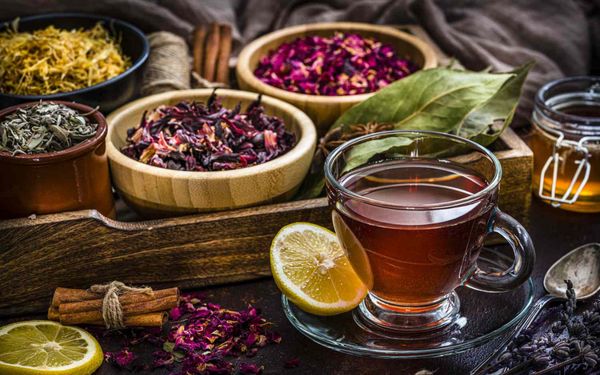A Sip of Anatolia’s Healing Tradition
What is the Herbal Tea?
Herbal tea is more than just a comforting beverage — it is nature’s remedy, rooted in centuries of traditional wisdom. Unlike traditional tea, which comes from the Camellia sinensis plant, herbal teas are made from dried leaves, flowers, seeds, or stems of a wide variety of plants.
In this article, we’ll explore three of the most beloved herbal teas from Turkey: sage (adaçayı), hibiscus, and thyme (kekik). From how they’re grown to how they’re processed, each of these teas carries a unique flavor, aroma, and health benefit.
Sage Tea
Sage is one of Turkey’s most iconic medicinal herbs. It grows naturally in the Aegean and Mediterranean regions, thriving in sunny, rocky terrain and mineral-rich soil.
Cultivation:
-
Grown in small family farms or wild-harvested from the hillsides.
-
Requires little irrigation, making it environmentally sustainable.
-
Harvested in spring and early summer, when the aromatic oils are strongest.
Drying & Processing:
-
Leaves and stems are hand-picked and air-dried in the shade to preserve color and essential oils.
-
Once dried, the leaves are gently crushed or left whole depending on the desired strength and flavor.
-
Packed in breathable kraft bags or glass jars to maintain freshness.
Sage tea is known for its soothing properties, supporting digestion, throat health, and immune defense.
Hibiscus Tea
Known for its vibrant red color and tangy, fruity flavor, hibiscus tea is gaining popularity around the world — but it has long been appreciated in Turkish households.
Cultivation:
-
Grown mostly in southeastern Turkey, where the climate supports tropical and subtropical plants.
-
Requires warm weather and rich soil with good drainage.
-
Harvested when the flower calyxes (the part used for tea) are fully developed and colorful.
Drying & Processing:
-
Flower petals and calyxes are gently sun-dried to preserve their vivid color and tart flavor.
-
No additives or sweeteners — just pure, dried flower parts.
-
Can be blended with dried fruits or herbs for added complexity.
Hibiscus tea is high in vitamin C and antioxidants, often consumed for heart health, blood pressure balance, and refreshing hydration.
Thyme Tea
Thyme, known as kekik in Turkish, is a staple of Anatolian herbal medicine and cuisine. It grows wild across central and eastern Anatolia, particularly in mountainous areas.
Cultivation:
-
Grown organically or wild-harvested at high altitudes for maximum essential oil content.
-
Flowering tops are collected during peak bloom, usually in late spring.
-
Minimal intervention—just sun, wind, and natural soil.
Drying & Processing:
-
Slow-dried in the shade, allowing the oils and aroma to remain intact.
-
Dried leaves and flowers are gently rubbed and sifted.
-
Packaged as loose leaves or in natural tea bags.
Thyme tea is revered for its antibacterial and respiratory support properties, often used to relieve coughs, colds, and boost immunity.
From Turkish Nature to Your Cup
At 333 Chicago, we partner with artisan growers and herbal experts across Turkey to bring you the highest-quality herbal teas, grown without chemicals and processed with care. Our herbal blends are:
-
Naturally caffeine-free
-
Sun-dried and hand-packaged
-
Full of natural aroma, color, and wellness benefits
A Sip of Anatolia’s Healing Tradition
Whether you're winding down with calming sage, refreshing with tangy hibiscus, or warming up with thyme’s earthy notes, you're not just drinking tea — you’re connecting with nature, tradition, and centuries of herbal knowledge.
